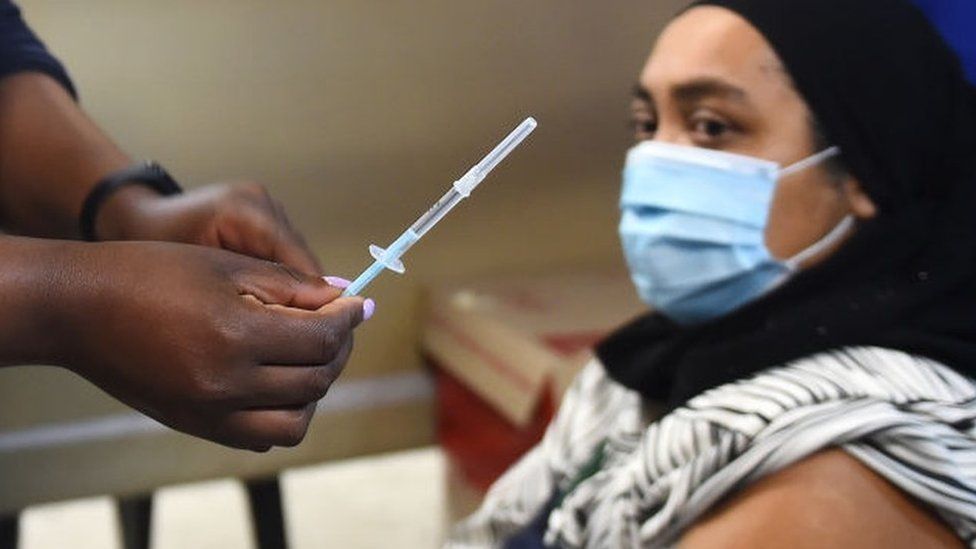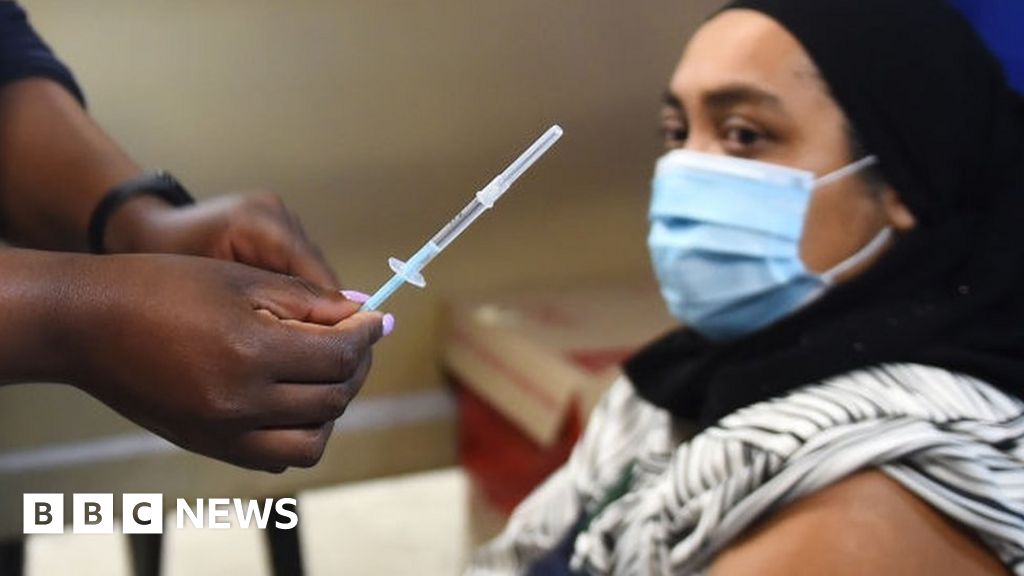
Health officials say the new coronavirus variant Omicron has now become dominant in South Africa and is driving a sharp increase in new infections.
Some 8,500 new Covid infections were registered in the latest daily figures.
That is almost double the 4,300 cases confirmed the previous day.
By contrast, daily infections were averaging between 200 and 300 in mid-November, a top South African scientist told the BBC.
Omicron has now been detected in at least 24 countries around the world, according to the World Health Organization (WHO).
South Africa was the first country to detect the highly mutated new variant. Its National Institute for Communicable Diseases (NICD) has said more than 70% of all the virus genomes it sequenced last month have been of the new variant.
India, Ghana, Saudi Arabia and the UAE are among the latest countries to have confirmed their first cases of Omicron. Others including the UK, US and Germany have also seen people infected by the new variant.
Many questions about Omicron remain to be answered, including how much protection current vaccines provide.
The WHO has categorised it as a “variant of concern”, and says early evidence suggests it has a higher re-infection risk.
Earlier this week, countries around the world restricted travel from southern Africa as details of the spread emerged.
This prompted South Africa’s foreign ministry to complain that it was being punished – instead of applauded – for discovering Omicron.
South Africa’s President Cyril Ramaphosa also said he was “deeply disappointed” by the travel bans, which he described as being unjustified.
WHO chief Tedros Adhanom Ghebreyesus later warned that blanket Covid measures were penalising southern Africa.
The rate of new infections is expected to increase in what is now the beginning of the fourth wave in South Africa, and the national health department says there has also been a slight increase in hospital admissions.
BBC health correspondent Nick Triggle says what this means for the rest of the world remains very uncertain, given that South Africa had a wave driven by another variant – Beta – that did not take off in other places.
As with previous variants Beta and Delta, the full picture in South Africa will not become clear until “people get so sick that they need to go to hospital” which is generally “three, four weeks later,” says Prof Salim Abdool Karim of the Africa Task Force for Coronavirus.
“But the feedback we’re getting from the ground is that there’s really no red flags – we’re not seeing anything dramatically different, what we’re seeing is what we are used to,” he told the BBC’s Newsday programme.
Most of the people who have been hospitalised in South Africa had not been vaccinated against coronavirus, according to the NICD.
There are no vaccine shortages in the country, and Mr Ramaphosa has urged more people to get jabbed, saying this remains the best way to fight the virus.
About 24% of South Africans have so far been fully vaccinated – far more than the 6% average recorded across the African continent as of October, but lower than the latest European average of 54%.
This video can not be played
